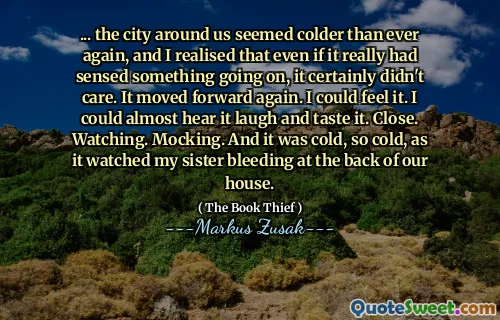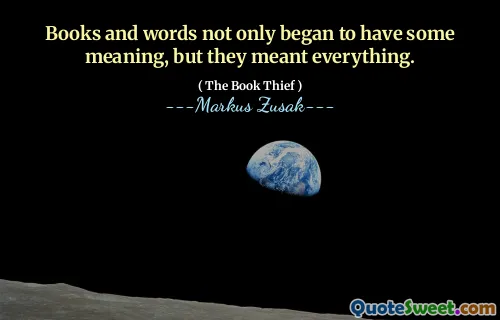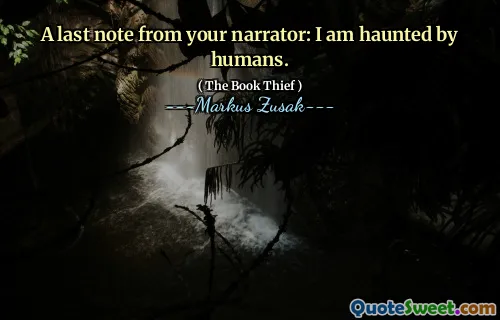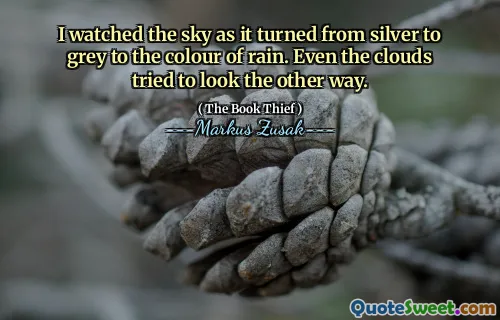
He's telling Liesel's story to prove to himself that humans can be beautiful and selfless and worthwhile.
This quote from Markus Zusak's The Book Thief encapsulates a profound human desire to find hope and meaning amid chaos and suffering. It reflects the narrator's — Death's — effort to seek out moments of beauty and kindness in a world often marred by cruelty and despair. By telling Liesel's story, Death chooses to focus on the exceptional goodness that can exist even in the darkest times. This act of storytelling becomes an act of faith, reinforcing the idea that despite all the harshness present in humanity, moments of selflessness and worth prevail.
The quote further invites readers to consider the power of perspective and narrative. It suggests that stories have the ability not only to entertain but also to heal and affirm our shared humanity. Through Liesel's story, there is a testament to resilience, love, and the small but profound ways human beings reach out to one another. It challenges us to look beyond the surface and recognize the intrinsic value in ourselves and others, even when the world seems bleak.
In a broader sense, this quote resonates as a reminder that beauty and goodness are often quiet, personal, and sometimes overshadowed by suffering. Yet, these qualities are essential and worthy of being remembered and celebrated. Whether or not one believes in a higher power or an inherent goodness, this quote underscores the significance of stories for making sense of our experiences and for highlighting the best parts of humanity. It's a call to witness, to acknowledge, and ultimately to believe that life’s worth is found in its acts of kindness and bravery.











